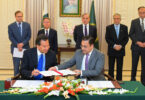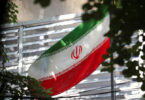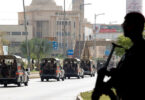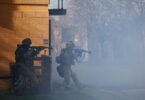Bharatia Janta Party (BJP) led alliance grabbed 350 plus seats of lower house Lok Saba of India’s parliament and the hardliner Narendra Modi will become the Prime Minister of India for the second consecutive term. This time the party has won 70 more seats of the lower house as compared with the elections of 2014.
It reflects the surge of parochial communal tendencies among the Hindu electorate which the present BJP leadership ignited and successfully capitalized on it.
The poor performance of Congress, other moderate political parties and defeat of Rahul Gandhi in his ancestral constituency depicts the drifting away of electorate from the secular and progressive thinking. The win of BJP in the Communist Party strong bastion of Bengal lends credence to this paradigm shift.
This is what the moderate Raja Vishwanath Parthap Singh, 8th Prime Minister of India in the National Front Government coalition government in 1989-90 had feared when BJP leaders like Murli Manuhar Joshi and Oma Bharthi had been lending their support to Hindu extremist parties in their campaign against Babri Mosque in Ajodia.
The campaign got momentum and in the Prime Minister Narsima Rao government of Congress Party the Mosque was stormed and demolished by a big mob of violent protestors which led by the leaders from BJP and Hindu extremist parties.
After the ouster of old guard like Lal Krishna Advani and Jaswant Singh, Narendra Modi may stick to his rigid stance against its western neighbour Pakistan. Previously, it was the BJP Government of moderate Atal Bihari Vajpai that the process of Composite dialogue started in 1999.
It was suspended by India when the 26/11 Mumbai attacks occurred and could not be resumed. When these attacks happened, former President Asif Zardari did not even wait for the return of foreign Minister Shah Mahmood Quershi from New Delhi and accepted it an act of non-state actors and in a way supported the Indian accusation against Pakistan.
The previous Nawaz Sharif government preferred a second fiddle role in foreign policy by remaining silent on the India’s sponsored terrorism in Pakistan and particularly on the arrest of Kalboshan Jadhev, a raw high profile agent in Baluchistan.
He kept mum over India’s hue and cry when Jadheve was awarded death sentence on the basis of his confessional statement and other strong evidence against him. In his government, false flag operations like attack on Patankot airbase were accepted genuine by lodging FIR in a Police Station in Gujranwala against the unknown terrorists.
The present ruling leadership of Pakistan is pursuing a proactive foreign policy to achieve peace and stability in the region. It is keen to normalize relations with India. Opening of Kartarpur Corridor is a big step forward. Pakistan has made repeated offers for resumption of Composite Dialogue process and foreign minster Shah Mahmood Qureshi has once again put the dialogue offer on the table one day before the results of Indian elections.
A photograph of the foreign minister with Indian counterpart Ms Shushma Suraj that appeared in media before the SCO meeting in Bishkek Kyrgyzstan rekindles the hope about thaw in Pak-India relations.
In his congratulation tweet, Prime Minister Imran Khan expressed the desire of working with his Indian counterpart for peace progress and prosperity in South Asia. In response Prime Minister Narendra Modi apparently reciprocated the same desire and vowed to give primacy to peace and development in the region.
It remains to seen how he acts after taking oath of office and translate it into reality because unlike the previous mediocre and docile Pakistani leadership he will be dealing now with an intelligent, strong and straight talking leader Imran Khan.






